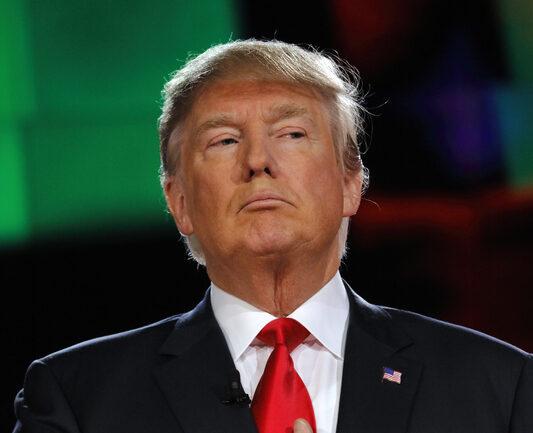President Donald Trump and Vice President JD Vance were not invited to former Vice President Dick Cheney’s funeral service on Thursday, November 20, 2025.
The funeral service took place at 11 a.m. at Washington National Cathedral in Washington, D.C. Cheney, who served as vice president under George W. Bush, died on November 3, 2025, at the age of 84 from complications of pneumonia and cardiac and vascular disease.
While Trump and Vance were excluded from the guest list, the service drew a significant bipartisan gathering of political figures. Former President George W. Bush delivered the eulogy, while former President Joe Biden attended alongside former Vice Presidents Kamala Harris, Mike Pence, Al Gore, and Dan Quayle. Other notable attendees included Democratic Representative Nancy Pelosi and Supreme Court Chief Justice John Roberts. The invite-only service hosted over 1,000 guests, according to reports.
The exclusion of Trump and Vance from the funeral was not entirely surprising, given the strained relationship between the Trump administration and the Cheney family in recent years. The tensions date back to when Dick Cheney’s daughter, former Congresswoman Liz Cheney, voted to impeach Trump in 2021 following the events at the U.S. Capitol on January 6. Liz Cheney was among the few Republicans who crossed party lines to support the impeachment effort.
The relationship between Trump and the Cheneys deteriorated further when Liz Cheney served on the January 6 committee investigating the Capitol riot. Her role in the investigation led to her losing favor within the Republican Party, and she ultimately lost her bid for reelection. Trump backed her opponent in that election.
Both Dick and Liz Cheney took the unprecedented step of endorsing Kamala Harris in the 2024 presidential election, a dramatic break from their longtime Republican allegiance. Dick Cheney had previously issued a sharp rebuke of Trump in a campaign video supporting his daughter’s reelection efforts. In that video, he called Trump “a coward” and said “there has never been an individual who is a greater threat to our republic.”
During the funeral service, Liz Cheney spoke about the lessons she and her sister learned from their father regarding the importance of the American republic and public service. Without directly naming Trump, she alluded to her father’s influence on her decision to hold the former president accountable for his role in the January 6 insurrection. She noted that her father understood democratic principles transcended party loyalty, emphasizing that bonds of party must always yield to the single bond Americans share as citizens.
George W. Bush’s eulogy avoided mention of any power struggles with his former vice president. Bush recalled how he had asked Cheney to help select a running mate for the 2000 election, only to realize the best choice was Cheney himself. He praised Cheney’s character and leadership, noting that after working together, he had concluded “they don’t come any better than Dick Cheney.”
At the time of the funeral, Trump reportedly had an intelligence briefing scheduled for 11 a.m., the same time the service began. The funeral was not listed on his public schedule for Thursday, November 20. When discussing the matter, JD Vance expressed condolences to the Cheney family while acknowledging political disagreements existed between them.
Not all former presidents attended the service. Barack Obama did not attend, and Bill Clinton did not attend due to what was described as a scheduling conflict. The decision to exclude Trump and Vance from the funeral guest list highlighted the lasting impact of political divisions that emerged during Trump’s presidency and the sharp break the Cheneys made from the Republican Party establishment they once represented.
Dick Cheney’s political career included service as vice president under George W. Bush. He played a central role in directing the U.S. response to the September 11 terrorist attacks and was instrumental in the decisions to invade Iraq and Afghanistan. Throughout his career, he was known as a skilled political operator and became one of the most powerful vice presidents in American history, though his tenure also made him one of the most polarizing figures in modern politics.

